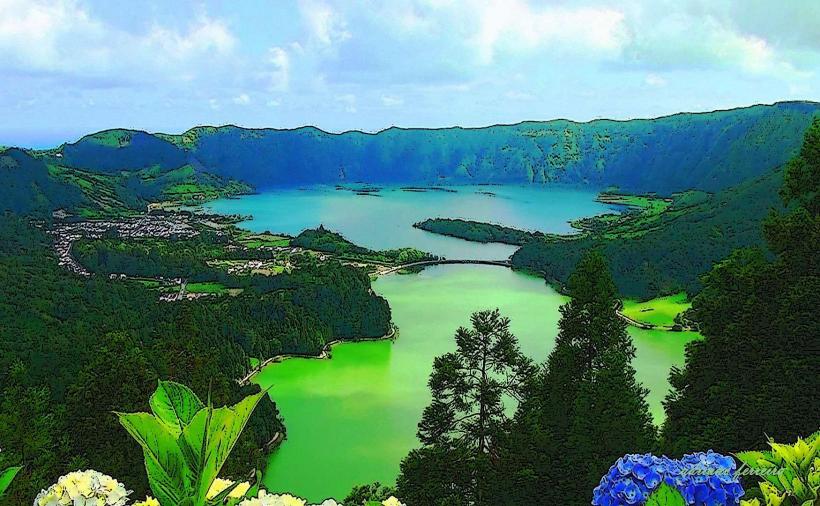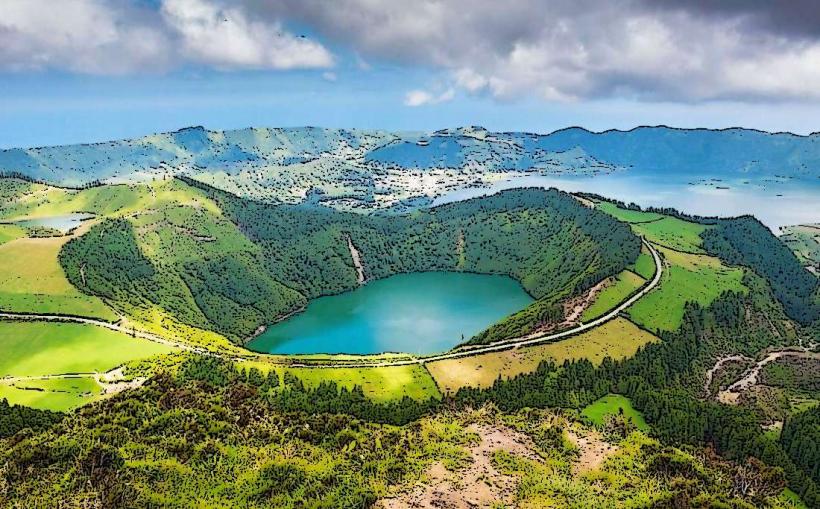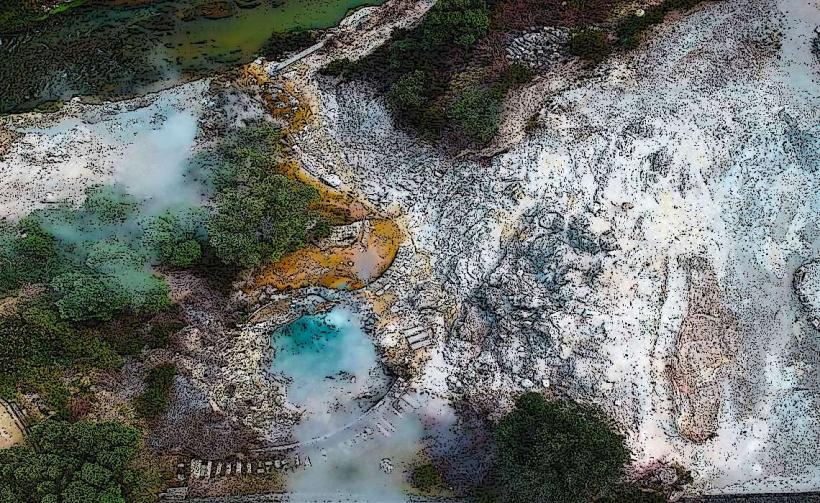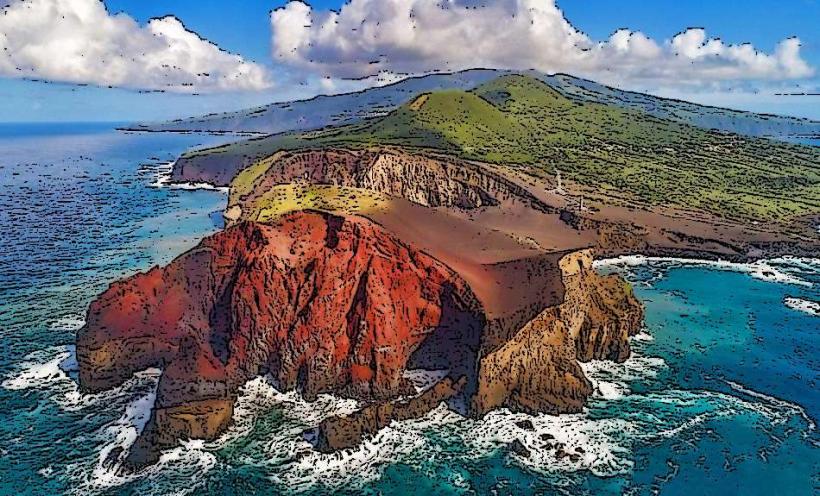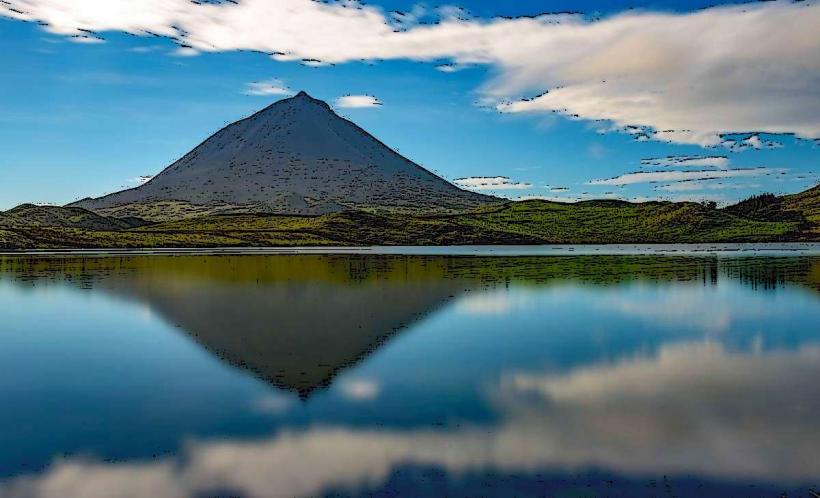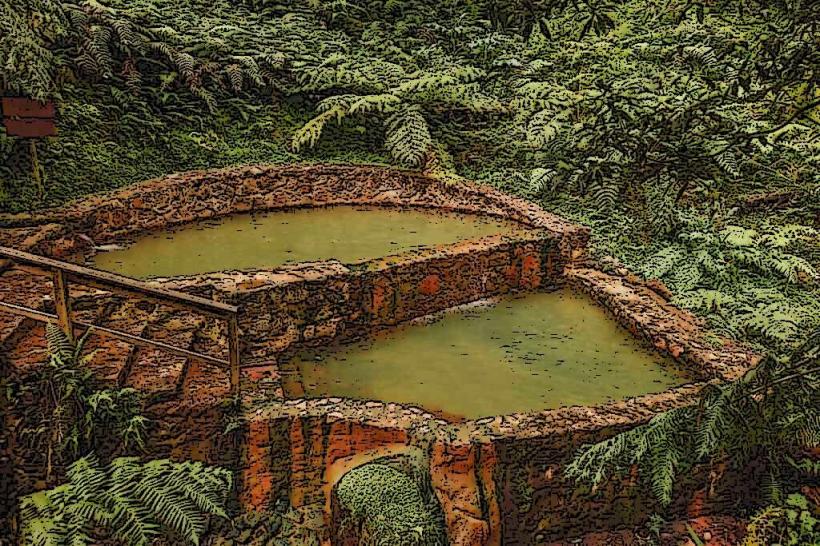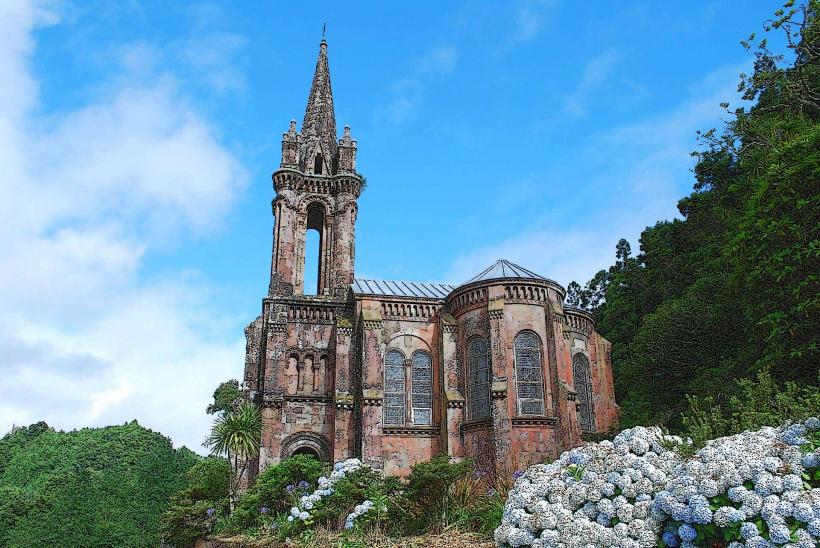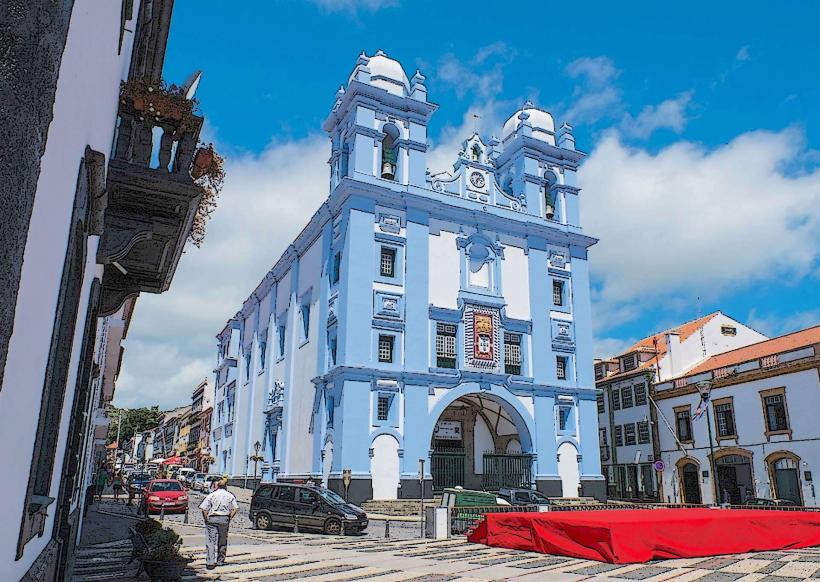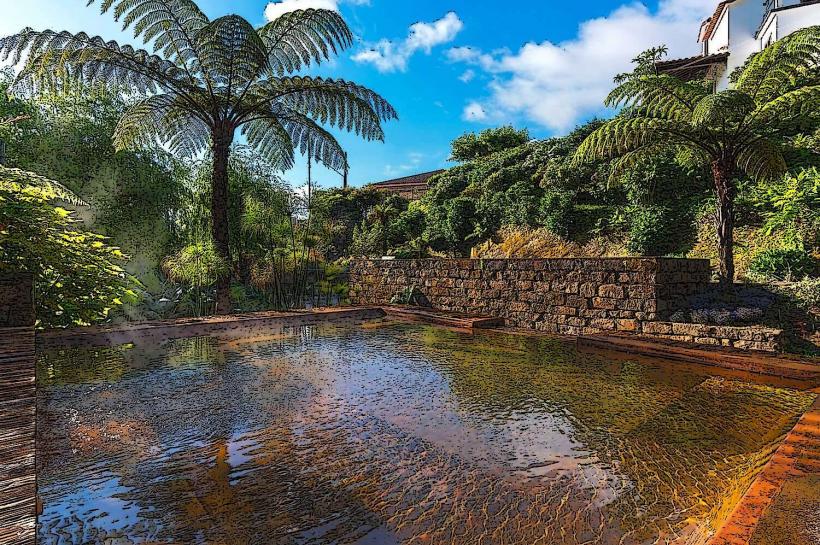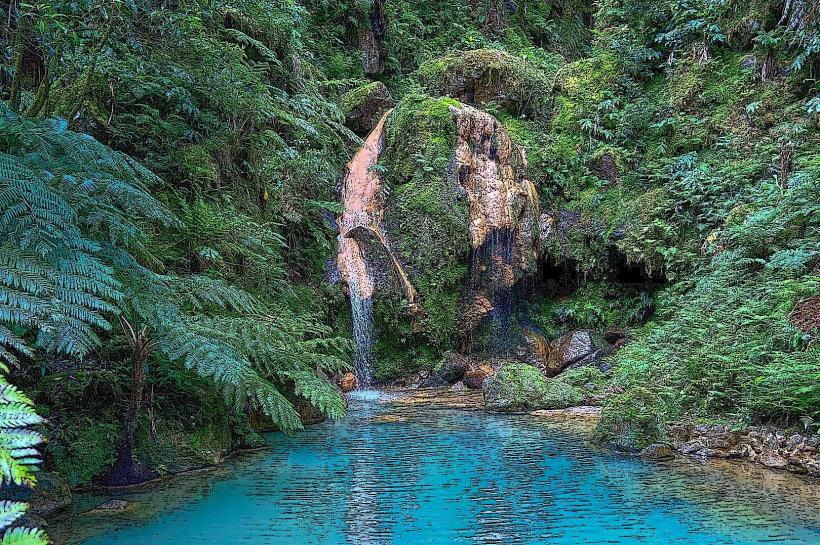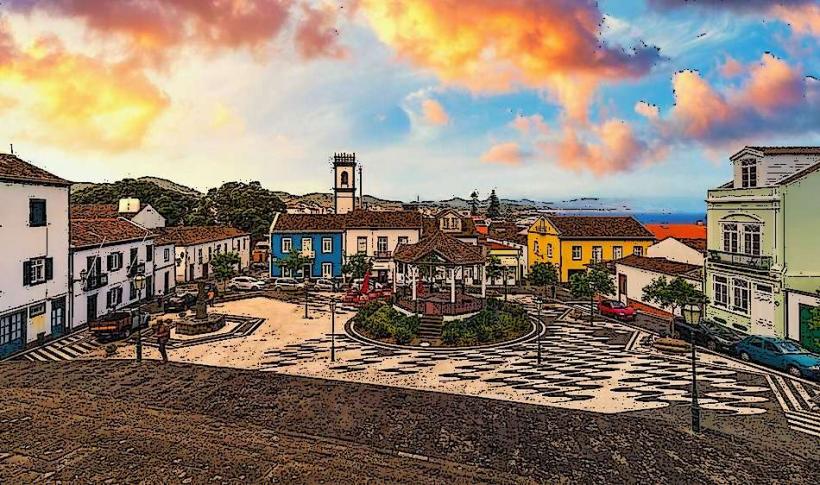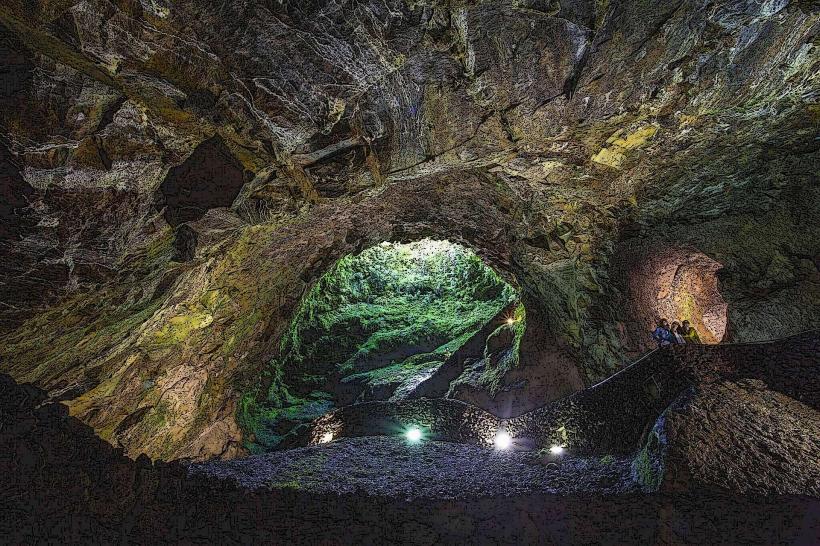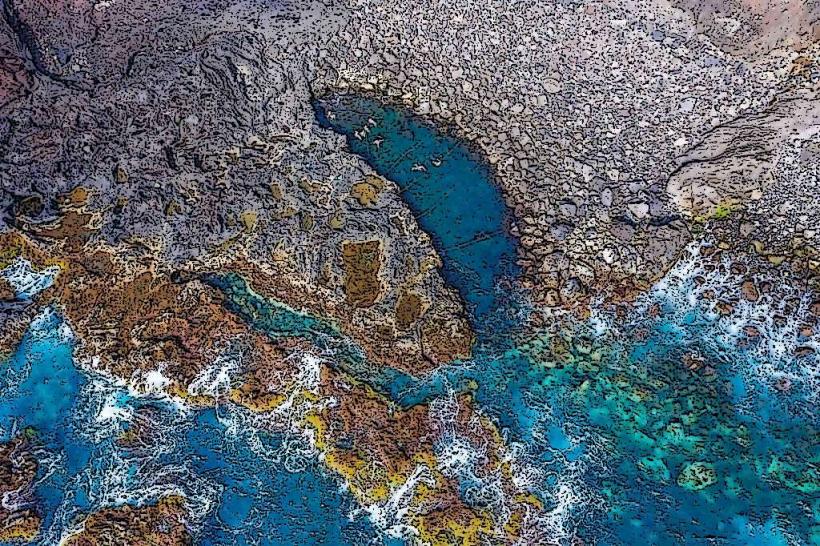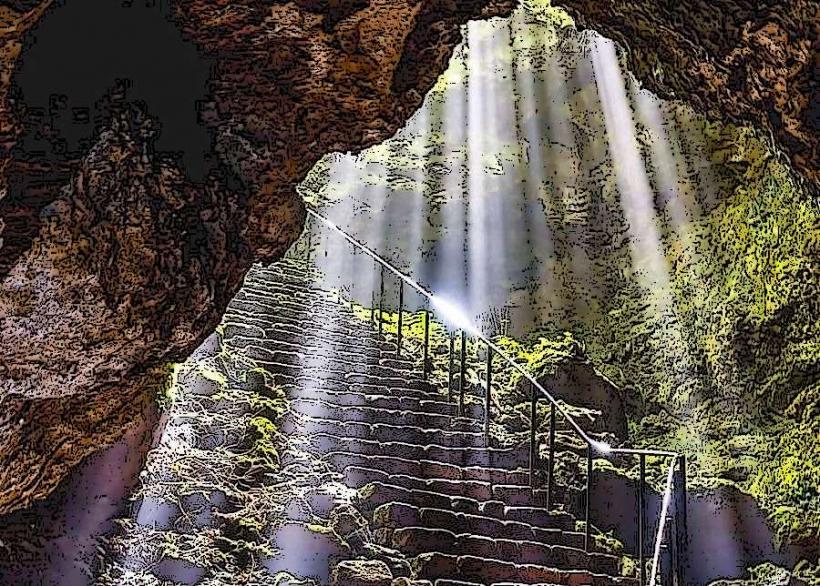Information
City: AzoresCountry: Portugal
Continent: Europe
The Azores are an archipelago of nine volcanic islands located in the North Atlantic Ocean, approximately 1,500 kilometers (930 miles) west of mainland Portugal. Known for their stunning natural beauty, unique landscapes, and diverse ecosystems, the Azores are a popular destination for nature lovers and adventure seekers. Here's a detailed overview of the Azores:
1. Geography and Landscape
- Volcanic Origins: The Azores were formed by volcanic activity and are characterized by dramatic landscapes, including volcanic craters, lush valleys, and steep cliffs. The islands are scattered across the ocean in a roughly triangular shape, with each island offering unique geological features. The largest islands include São Miguel, Terceira, Pico, and Faial.
- Natural Beauty: The islands are renowned for their scenic beauty, from the emerald green lakes and geothermal hot springs of São Miguel to the dramatic, rugged cliffs of Pico. The Azores offer a combination of volcanic landscapes, dense forests, and coastal scenery, including natural pools, waterfalls, and pristine beaches.
- Protected Areas: Many parts of the Azores are designated as nature reserves and protected areas. The archipelago is home to several national parks, including São Jorge Island's Fajã de Santo Cristo and Pico Island, which is a UNESCO World Heritage site known for its vineyards and the Pico Mountain, the highest point in Portugal.
2. Climate
- Mild Oceanic Climate: The Azores have a temperate, oceanic climate, with mild winters and summers, thanks to their location in the Atlantic. The average temperature ranges from 14°C (57°F) in winter to 22°C (72°F) in summer. Rain is common, particularly in the winter months, contributing to the lush, green landscapes.
- Microclimates: Due to the islands' volcanic nature and varied topography, microclimates can occur even within short distances. Some areas may be warm and sunny, while others experience mist, rain, and cooler temperatures, creating a diverse weather experience across the islands.
3. Flora and Fauna
- Rich Biodiversity: The Azores are home to a rich variety of flora and fauna, many of which are endemic to the islands. The lush vegetation includes extensive laurel forests, subtropical plants, and wildflowers, particularly on São Miguel and Terceira.
- Wildlife: The archipelago is an important destination for birdwatching, with species such as the Azores Bullfinch and the Madeiran Storm-petrel being endemic. The surrounding ocean is home to diverse marine life, including whales, dolphins, and sea turtles. The islands are known for whale watching, with several species migrating through the waters around the islands, especially from Pico, Faial, and São Miguel.
4. Culture and Heritage
- Portuguese Influence: The Azores have been part of Portugal since the 15th century, and the islands' culture reflects the mainland’s influence while also incorporating unique elements. Traditional Azorean architecture includes whitewashed buildings with colorful trim, often surrounded by gardens filled with hydrangeas.
- Festivals and Traditions: The Azores are known for their vibrant festivals, many of which celebrate the region’s religious and cultural heritage. Some of the most famous events include the Festivities of Our Lady of the Azores in Angra do Heroísmo, the Holy Spirit Festivals (Festas do Espírito Santo), and the Bullfighting Festivals on Terceira. The Azorean people are also known for their traditional crafts, such as ceramics, weaving, and lace-making.
5. Cuisine
- Traditional Dishes: Azorean cuisine is heavily influenced by both the sea and the land. Seafood plays a significant role in local dishes, including caldeirada (a fish stew), lulas recheadas (stuffed squid), and ameijoas à açoriana (clams prepared with garlic, wine, and herbs).
- Pork and Beef: Pork is a popular meat in the Azores, particularly Alcatra, a beef stew that is slowly cooked in a pot. The islands are also known for their delicious cheeses, particularly São Jorge cheese, which is made on the island of São Jorge and has a distinctive flavor.
- Wine and Liquor: The Azores are known for their production of wine, particularly on Pico Island, where vineyards grow in volcanic soil. The Garrafeira wine is produced in small quantities, and the islands also produce Aguardente, a traditional liquor made from sugarcane.
6. Economy
- Agriculture and Fishing: The Azores' economy has traditionally been based on agriculture, livestock farming, and fishing. The islands are known for producing dairy products, meats, and wines, as well as a variety of fruits, including pineapples, bananas, and citrus.
- Tourism: In recent years, tourism has become an increasingly important part of the Azorean economy. The islands are popular for eco-tourism, whale watching, hiking, and exploring the unique volcanic landscapes. São Miguel, Terceira, and Pico are some of the most visited islands, offering a variety of attractions and activities for visitors.
- Renewable Energy: The Azores have been leading efforts in sustainable energy, with a focus on geothermal power, wind, and hydropower. The region’s geothermal resources are particularly significant and are used for both electricity generation and heating.
7. Transportation and Accessibility
- Flights: The Azores are accessible by air from mainland Portugal, with direct flights to Ponta Delgada (São Miguel), Terceira, Faial, and Pico. The islands are also connected to each other by regular flights, with Ponta Delgada and Horta serving as major hubs.
- Ferries: Ferries operate between the islands, making travel between them convenient for those exploring more than one island. However, due to the distance between the islands, travel by boat can take several hours.
- Roads and Buses: While each island has its own road networks, many roads are narrow and winding due to the terrain. Public buses are available on the islands, but renting a car is often the best way to explore at your own pace.
8. Tourist Activities
- Whale Watching and Marine Life: The Azores are one of the best places in the world for whale watching. The waters around the islands are home to a wide variety of cetaceans, including sperm whales, humpback whales, and orcas. Several companies offer whale-watching tours, as well as opportunities to swim with dolphins.
- Hiking and Outdoor Adventures: The islands offer excellent hiking trails, including the Sete Cidades crater lakes in São Miguel, the Pico Mountain climb on Pico Island, and coastal hikes on São Jorge. The volcanic terrain provides an ideal setting for exploring natural hot springs, fumaroles, and geothermal activity.
- Cultural Exploration: The Azores are rich in history and culture, with museums, churches, and traditional villages that offer a glimpse into the islands’ past. The UNESCO World Heritage site of Angra do Heroísmo on Terceira is one of the most notable places of cultural interest, with its beautiful historic buildings and maritime history.
9. Local Identity
- Isolation and Traditions: The Azores have historically been isolated, which has allowed the islands to maintain their own unique identity, language, and customs. The local dialects, traditions, and way of life are a testament to the resilience and independence of the Azorean people.
- Pride in Heritage: The Azorean people take great pride in their cultural heritage, with a strong emphasis on community, family, and tradition. The islands' distinct music, dances, and festivals all contribute to a sense of local pride.
10. Conservation and Sustainability
- Environmental Focus: The Azores are dedicated to preserving their unique natural environment. Efforts are made to conserve the islands' diverse ecosystems, protect endangered species, and promote sustainable tourism. The archipelago is a model for eco-friendly practices and a place where visitors can engage in responsible travel.
Summary
The Azores offer a stunning blend of natural beauty, rich cultural heritage, and outdoor adventures. The islands’ volcanic origins, pristine landscapes, and diverse ecosystems make them a paradise for nature lovers and adventure seekers. Whether exploring the islands' rugged terrain, enjoying local cuisine, or experiencing the warmth of the Azorean people, visitors are sure to find a unique and unforgettable destination in the Azores.

